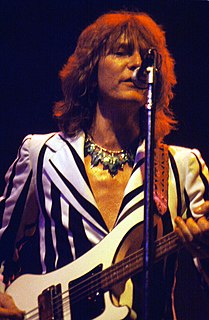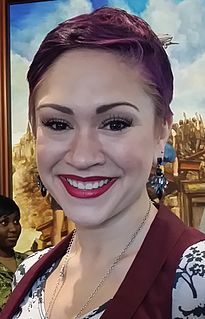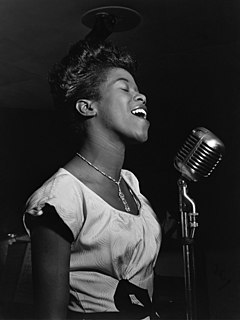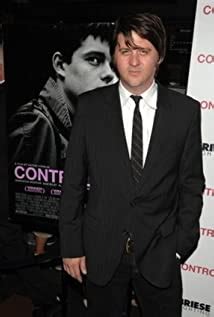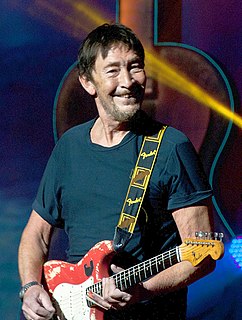A Quote by Robert Plant
I hate cliché. And when you're a rock singer in 1966, or whatever it was, psychedelic blues, through to the '70s, which we know all about, and the '80s, which was a scramble to hang on in, and the '90s, which was a great time for experimentation... and I'm really still excited. The huge vast diagonals within the music that I've been involved with.
Related Quotes
This was early '90s and in New York hip-hop was coming on really strong; that was the sort of urban folk music that was almost threatening to eclipse rock music and indie rock music in terms of popularity, which it has certainly gone on to do. But you know, this is the end of the 1980s, beginning of the '90s. The whole independent label thing has really evolved to this incredible point from the early '80s when we started, and there wasn't one record label at all, until a couple people started forming these small labels.
I don't know why people call me a jazz singer, though I guess people associate me with jazz because I was raised in it, from way back. I'm not putting jazz down, but I'm not a jazz singer...I've recorded all kinds of music, but (to them) I'm either a jazz singer or a blues singer. I can't sing a blues – just a right-out blues – but I can put the blues in whatever I sing. I might sing 'Send In the Clowns' and I might stick a little bluesy part in it, or any song. What I want to do, music-wise, is all kinds of music that I like, and I like all kinds of music.
The cosmos is a vast living body, of which we are still parts. The sun is a great heart whose tremors run through our smallest veins. The moon is a great nerve center from which we quiver forever. Who knows the power that Saturn has over us, or Venus? But it is a vital power, rippling exquisitely through us all the time.
I loved working with Malcolm [McDowell]. He's been such an important person in my life. I mean, not just as someone I was married to, which is huge, and the father of my children, which is even bigger, but also as a friend and an inspiration and somebody who probably helped to fuel something that all my reading as a child had already started, which was a love of England and the world of the theater over there, which I became involved with through him and probably because of him.
I was a child of the '60s basically, which is a real blank. I really started growing up, I think, in the '70s. I'm a glam-rock kid. But Dublin, Ireland in those days was a very dark place, as in it was a very poor, almost third world. Economically, the whole world is going through a recession at the moment. In the '60s, '70s, and the '80s in Ireland was a real recession. It wasn't a pleasant place.
There has been in our time a lack of reliance on language and a lack of experimentation which are frightening to anyone who sees them as symptoms. We know the phenomenon of stage-fright: it holds the player shivering, incapable of speech or action. Perhaps there is an audience-fright which the play can feel, which leaves him with these incapacities.
I think the Control has really opened up the music to a whole new audience. I've met kids recently, kids of people I know who are 14 and 17 who love Joy Division and have been a fan before the movie, which is really weird. How does that happen? I have no idea. But, the music that's out there today is heavily influenced by these bands from the 70s and 80s like Joy Division. I want them to take away a little bit of what Ian Curtis was and, at such a young age, he had so much going on.
Pop music, which I deeply admire and wish I could play better than I can, is based on expressing one mood, one feeling at a time. Classical music is by its very nature involved with different kinds of music, constantly transforming one another, which is more akin to the way our experience of life really is.



